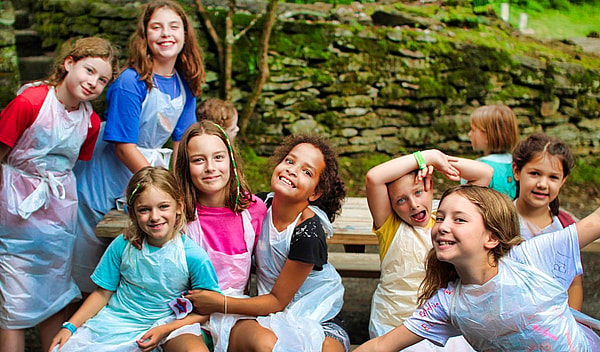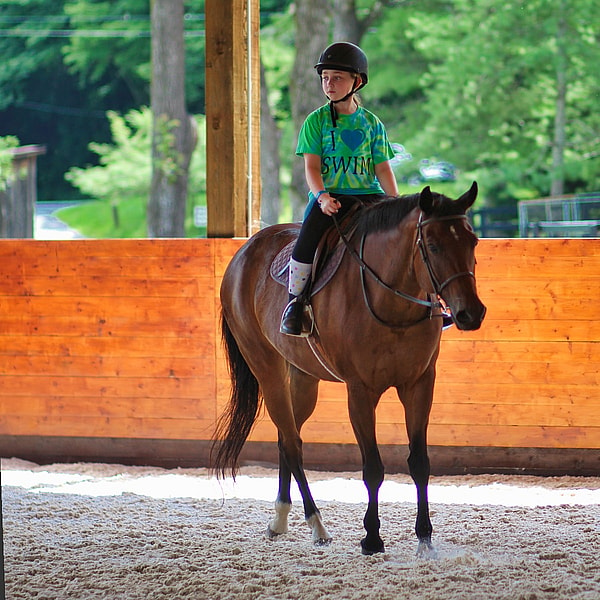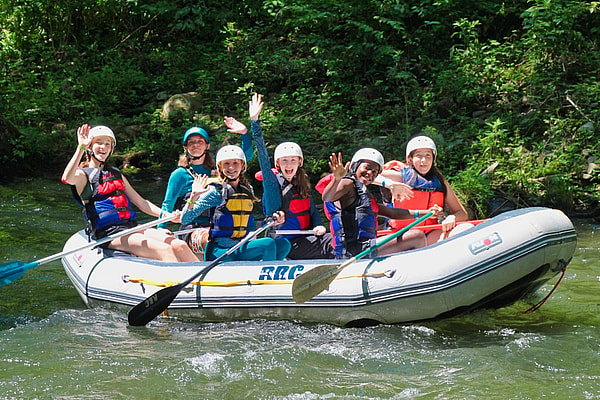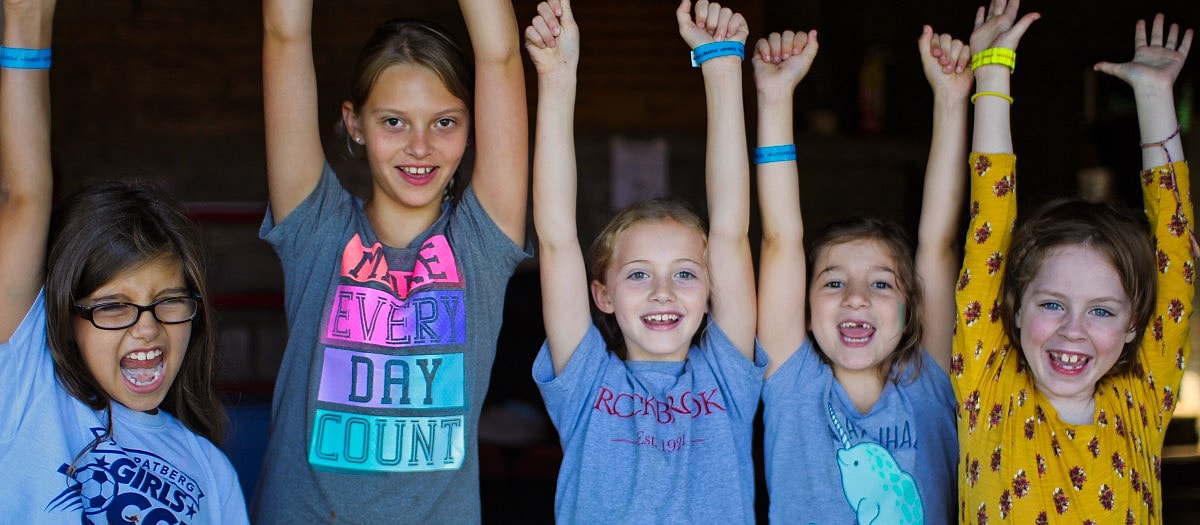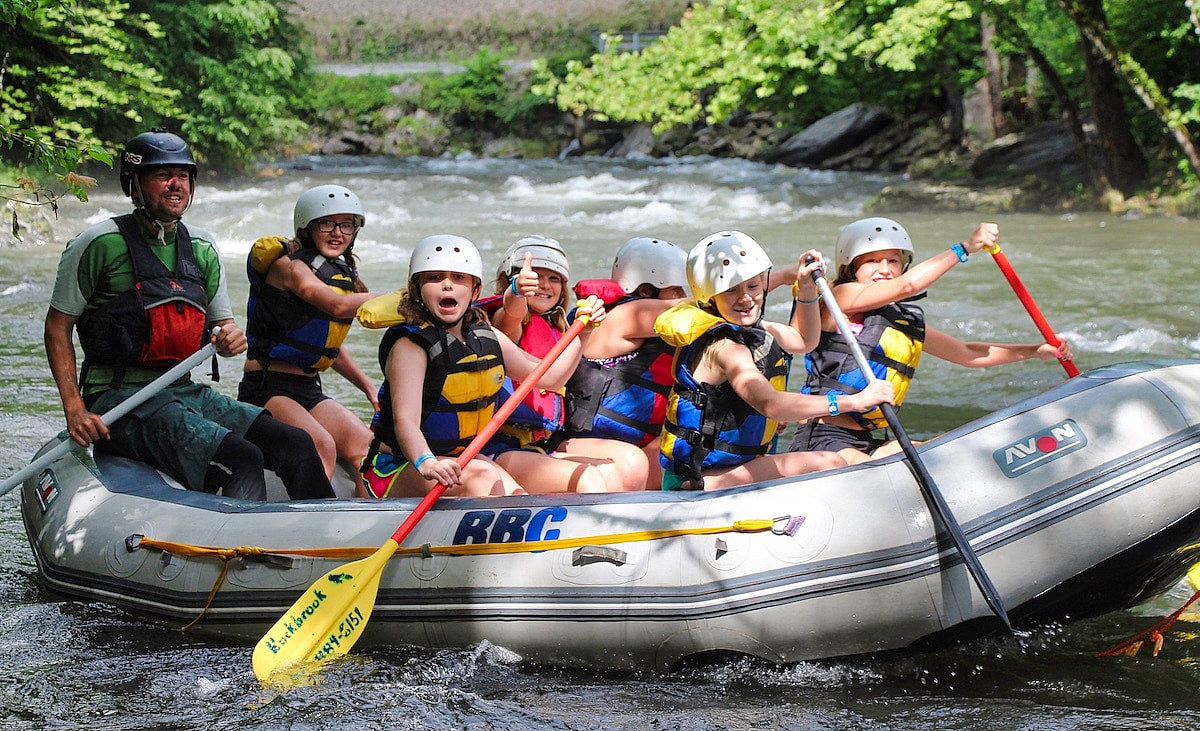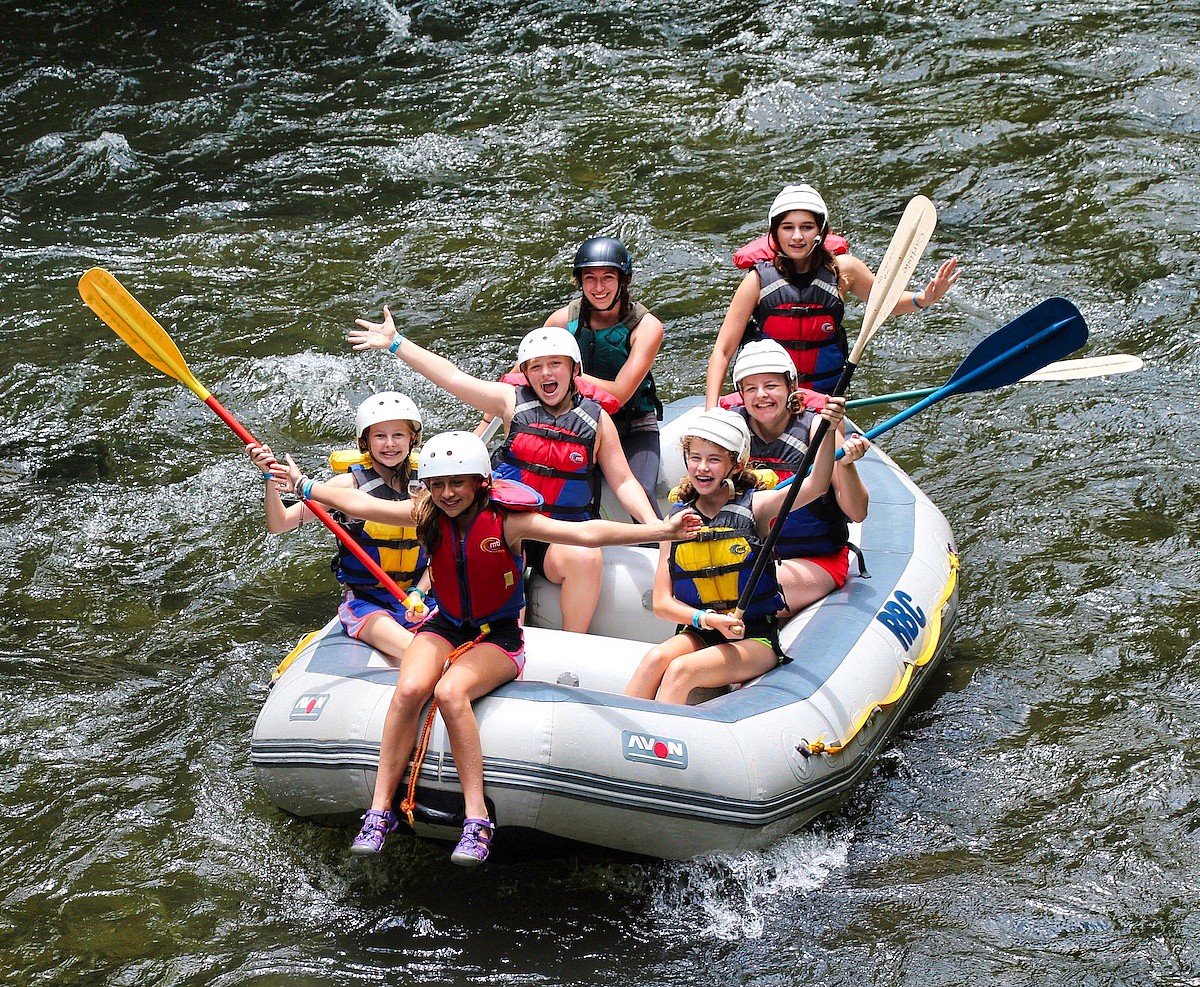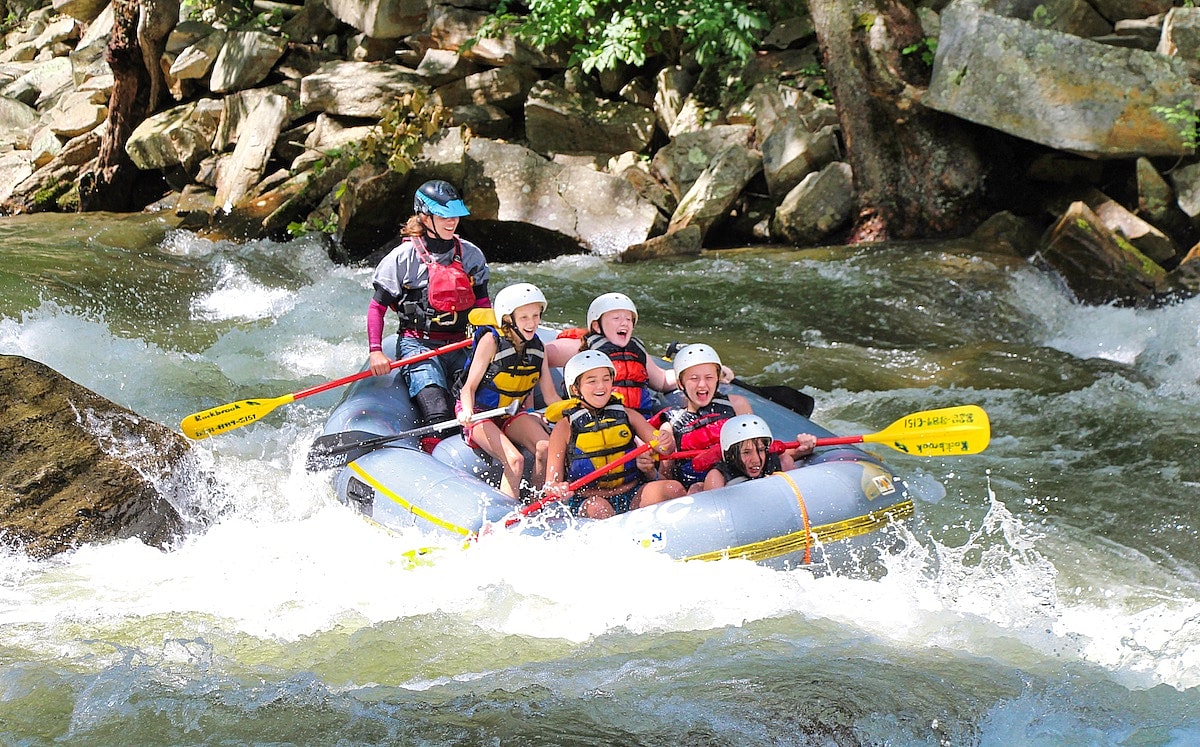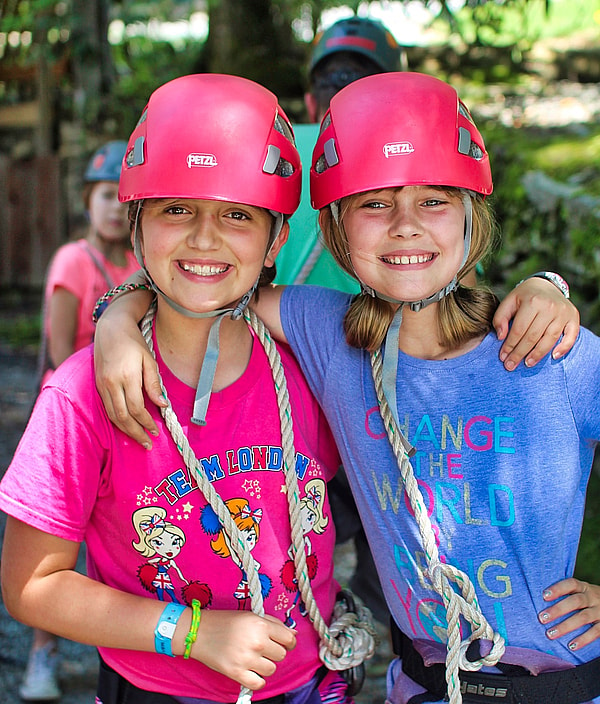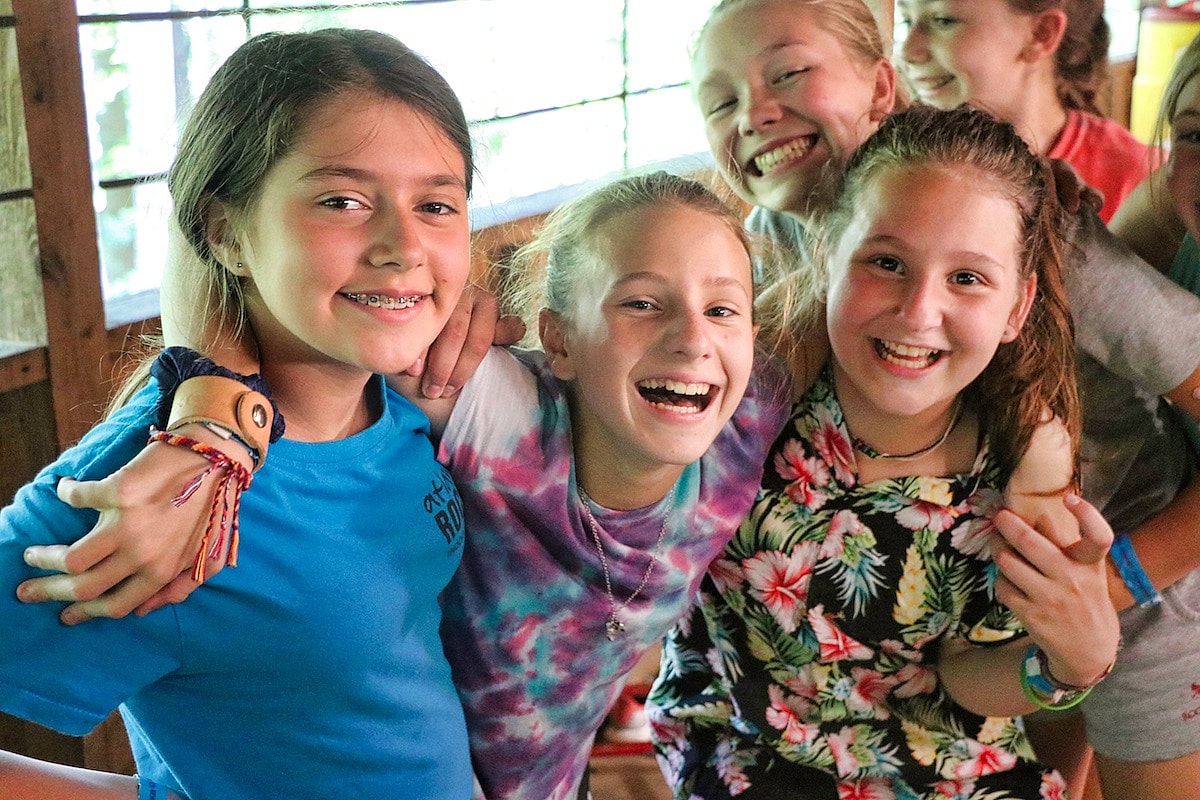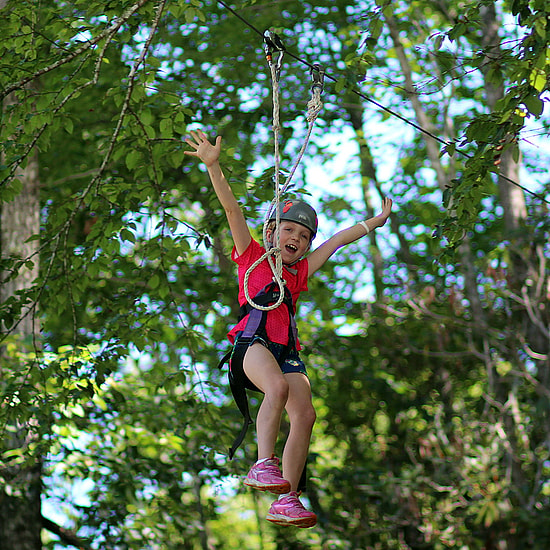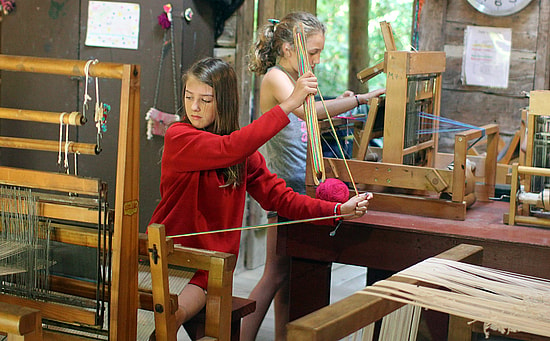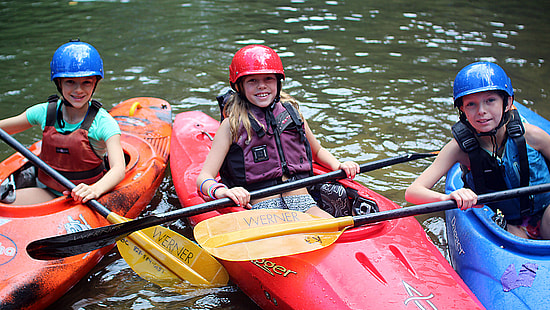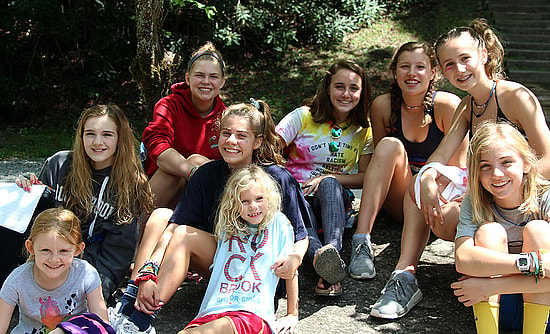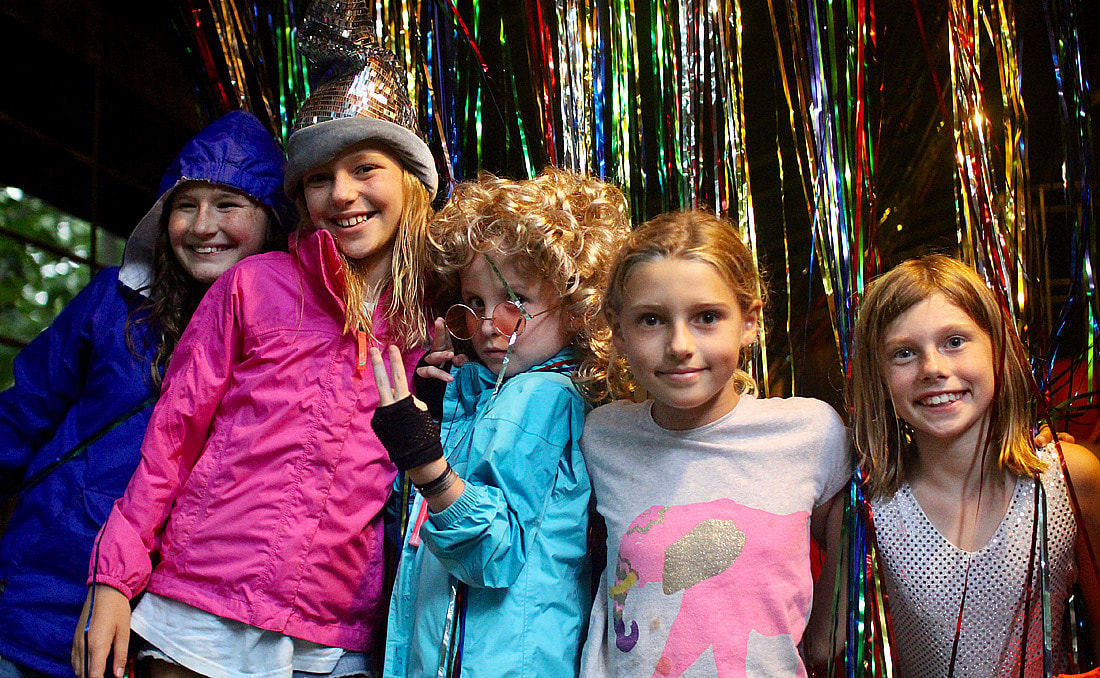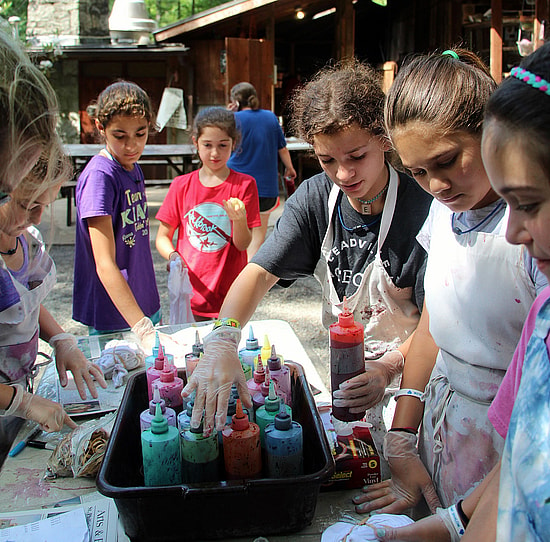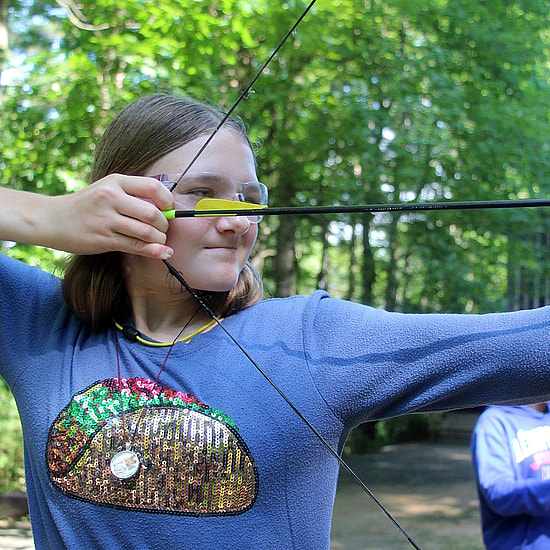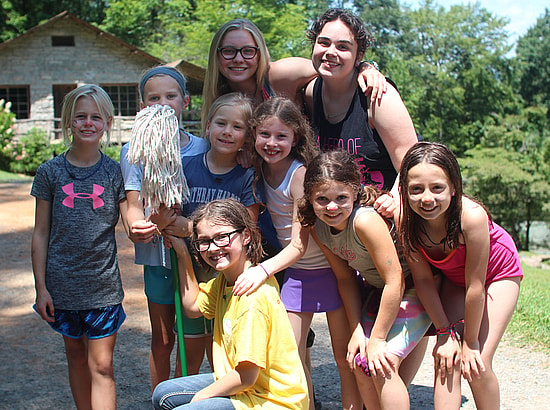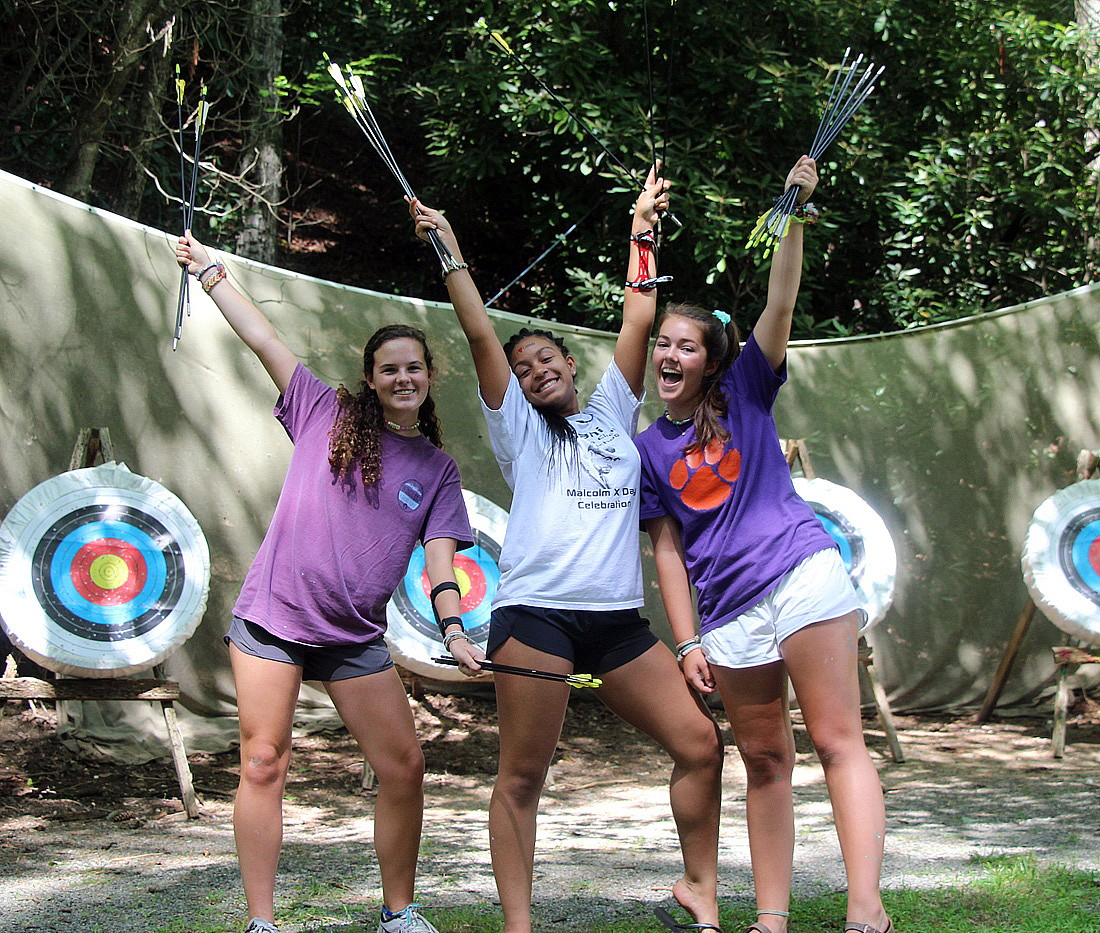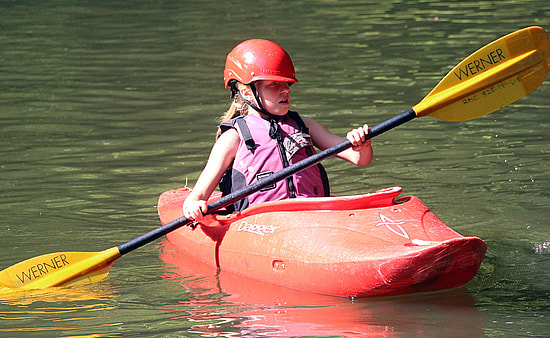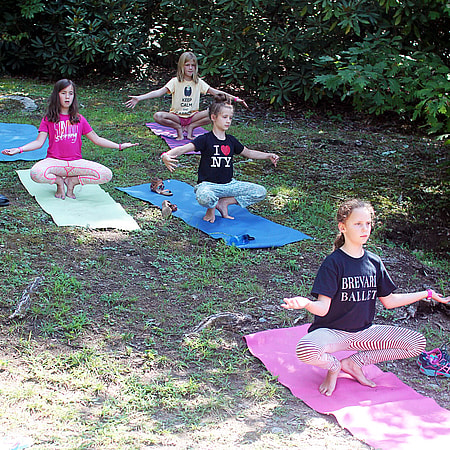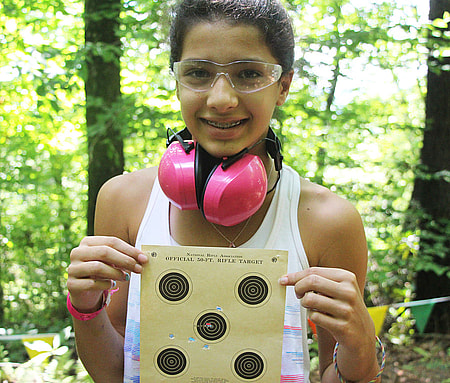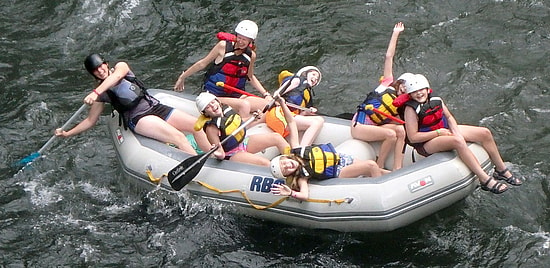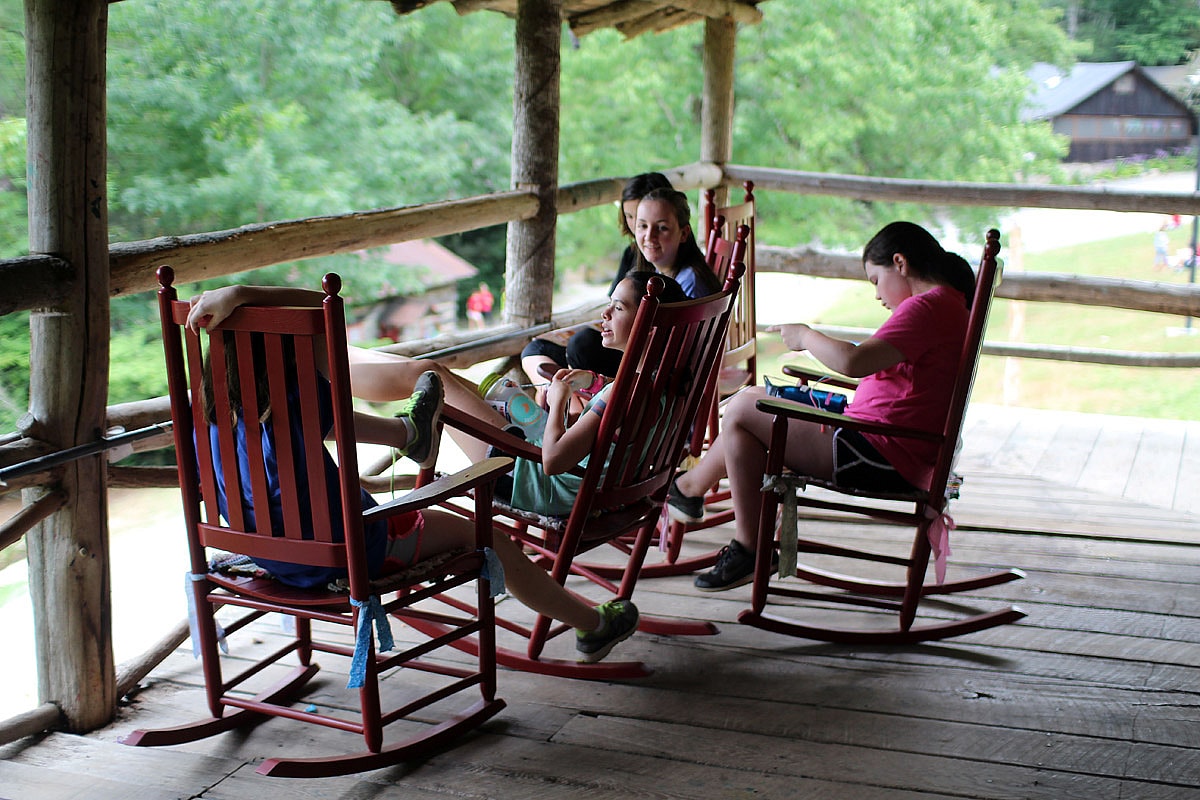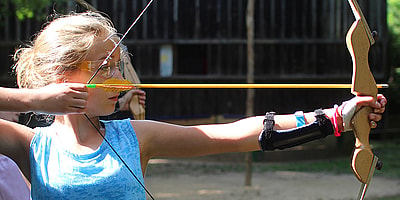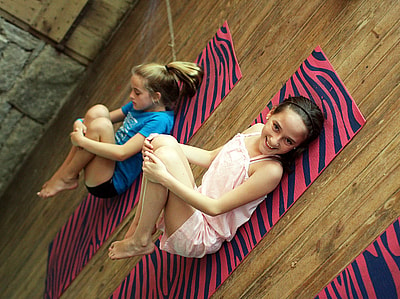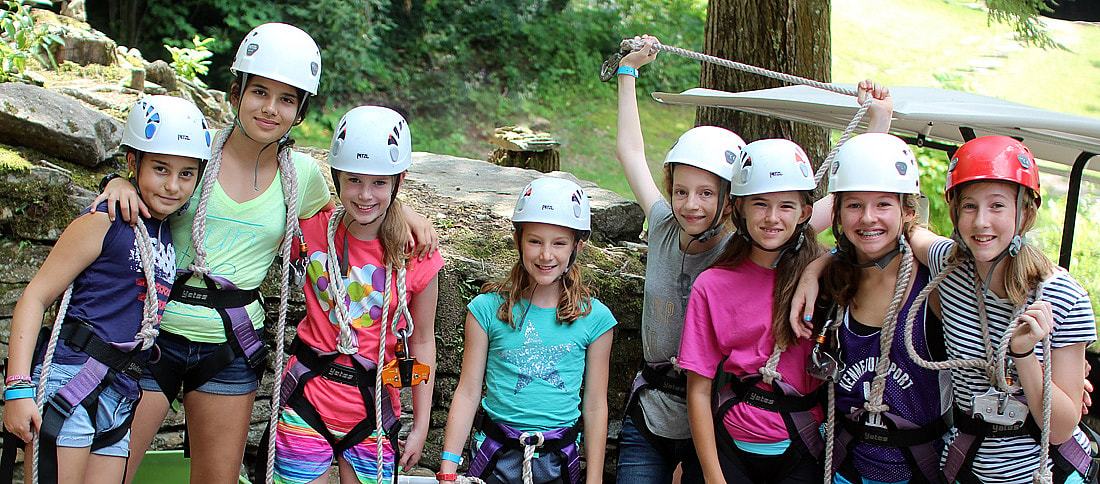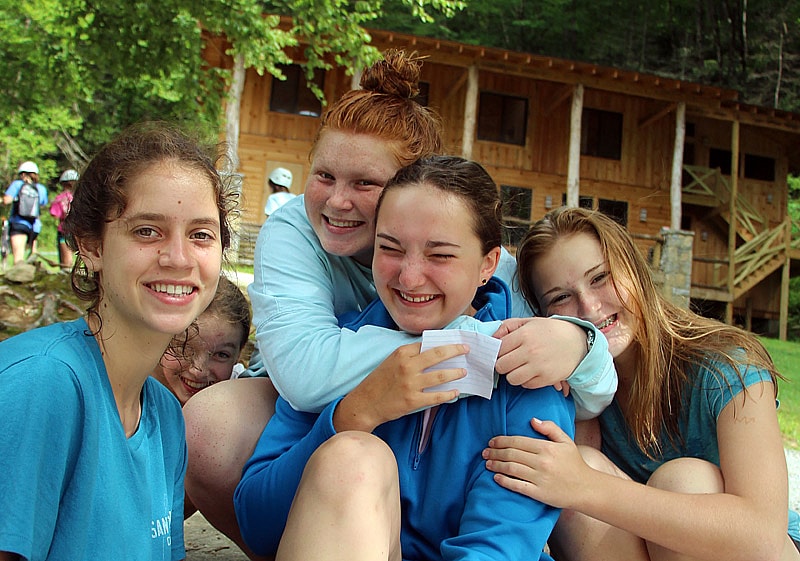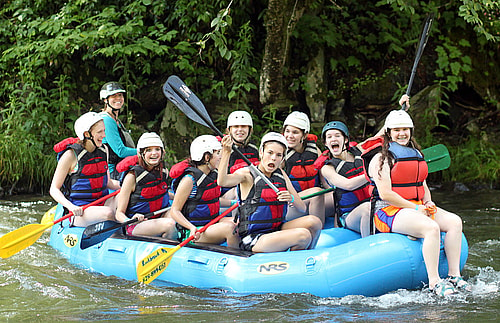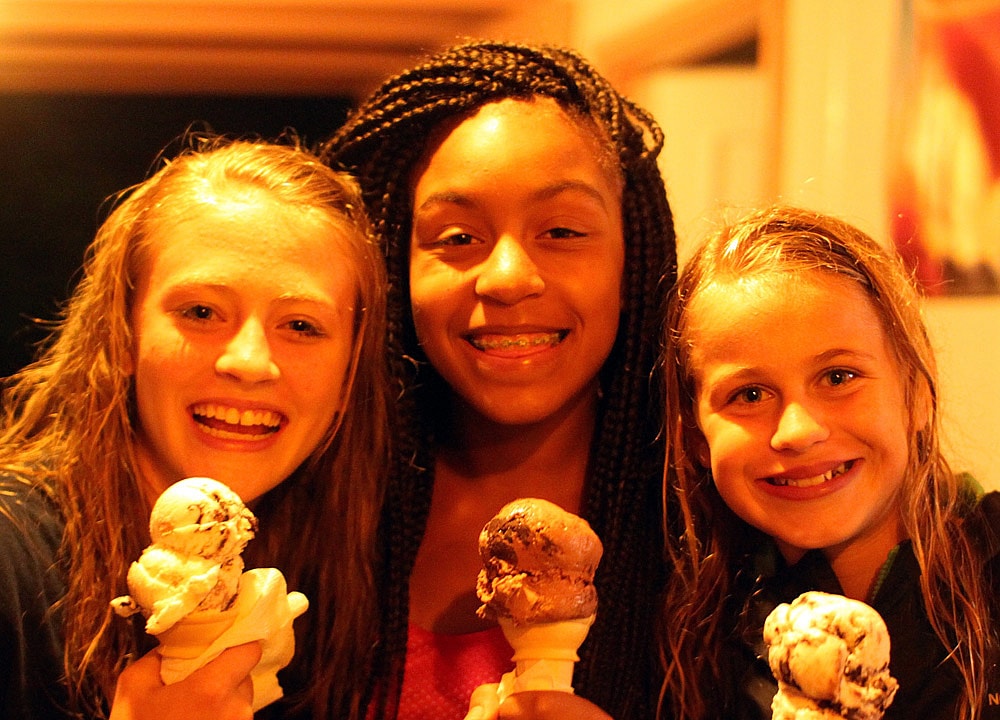It’s no secret that life at camp for kids is very different from the rest of the year. Many of the differences are obvious: the activities (archery!), the food (tamales!), the weather (all of it!), the beautiful setting (mountains, waterfalls!), parental involvement (very little), close contact with nature (spiders!), access to technology (none), even our friends (the closest). But there are more subtle differences too: the shared experience and strong sense of community, the lack of academic and social competition, the regular exposure to singing, the opportunity to be creative and face adventure, the almost constant physical activity, the genuine kindness and caring shown and practiced, the face-to-face communication, the celebration of our silly sides, and the regular feelings of contentedness and joy, for example. All of these differences, and certainly more, collectively define camp life. They shape the sleepaway camp experience for your girls.
And that’s a good thing! A great thing! After all, it’s these differences that make camp inherently educational, surprising and delightful for everyone at Rockbrook. These are differences that make a difference. They are the core reason camp is great for kids, how the experience of camp life is so beneficial, even transformative in the long run.
Today another word came to mind that helps describe camp life as it differs from our kids’ ordinary experience. It’s meander. I think it describes well a cherished freedom the girls have at Rockbrook, the regular opportunity to wander and explore what camp has to offer.
Different from the hectic pace required to balance school, sports teams, clubs, afternoon activities and home responsibilities, camp allows girls to decide for themselves how to spend their time. We provide some structure by organizing activities (times, places, staff and supplies) and scheduling certain aspects of our day (like meals, rest hour and evening program, for example), but also build in several blocks of free time when the girls can play freely, link up with friends, and enjoy a relaxed, less goal-driven pace. When there’s no grade, championship or parental praise at stake, girls can truly meander. At Rockbrook, we really value that flexibility, and believe there’s a great benefit for girls to meander, so we encourage it and support it everyday.
Meandering, this self-directed exploring, is valuable because it affirms the girls’ personal choices. Not being told which activities to take, which trips to sign up for, and what to do during free time, is not just liberating; it’s empowering. The girls have great options in front of them at camp— play in the creek, or finish a craft project, or join a gagaball game, for example —so no matter what they choose, they can feel happy about what they end up doing, who they are spending time with, and what they are learning. Most importantly though, they can gain insights into their true preferences, and in some ways, who they really are. Granting children this level of agency, in other words, provides an opportunity for self-exploration and character development, no matter how subtly or explicitly. Maybe we should say kids need to meander, for this reason. And if so, this is another reason a camp experience is so important. I’d say it’s certainly another reason why girls love Rockbrook, and again, why “there’s no place like camp.”


